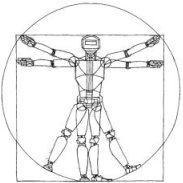Robotics: Science and Systems II
Sliding Autonomy for Complex Coordinated Multi-Robot Tasks: Analysis & Experiments
F. Heger, S. SinghAbstract: Autonomous systems are efficient but often unreliable. In domains where reliability is paramount, efficiency is sacrificed by putting an operator in control via teleoperation. We have investigated a mode of shared control called Sliding Autonomy that combines the efficiency of autonomy and the reliability of human control in the performance of complex tasks, such as the assembly of large structures by teams of robots. Our system is modeled using Markov models to gain a general understanding of the interdependencies between the autonomous robots abilities, those of the operator, and overall system performance. We report results from a study in which three robots work cooperatively with an operator to assemble a structure. Assembly in this case requires high precision and has a large number of failure modes. Our results show that under the Sliding Autonomy paradigm, our combined robot-human team is able to perform the assembly at a level of efficiency approaching that of fully autonomous operation while increasing overall reliability to near-teleoperation levels. This increase in performance is achieved with the additional benefit of significantly reduced mental workload placed on the operator as compared to pure teleoperation. The results of the study support both our expectations and modeling results and show that Sliding Autonomy provides an increase in efficiency over teleoperation together with an increase in reliability over autonomous operation.
Bibtex:
@INPROCEEDINGS{ Heger-RSS-06,
AUTHOR = {F. Heger and S. Singh},
TITLE = {Sliding Autonomy for Complex Coordinated Multi-Robot Tasks: Analysis & Experiments},
BOOKTITLE = {Proceedings of Robotics: Science and Systems},
YEAR = {2006},
ADDRESS = {Philadelphia, USA},
MONTH = {August},
DOI = {10.15607/RSS.2006.II.003}
}
